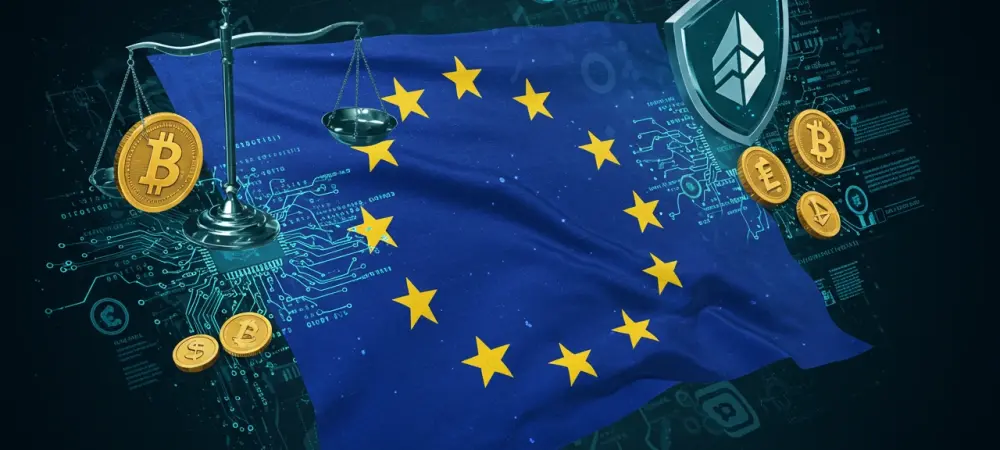The evolution of cryptocurrency regulation in Europe has taken a significant turn with the introduction of the Markets in Crypto Assets (MiCA) framework. This regulatory initiative aims to bring coherence to a fragmented market, making it easier for digital asset businesses to operate across the continent. The MiCA license serves as a pivotal regulatory instrument, giving companies like Bitvavo a unified approach to operate in 30 countries within the European Economic Area, including Iceland, Norway, and Liechtenstein. For Bitvavo, securing a MiCA license was a strategic move to establish itself as the leading digital asset exchange in Europe. It has achieved registration in numerous European countries, but the MiCA license provides a harmonized framework that supersedes national regulations, offering both stability and growth prospects.
MiCA’s Impact on the Cryptocurrency Exchange Landscape
MiCA has become an attractive prospect for other cryptocurrency companies aiming for regulatory clarity and expansion in Europe. Firms like MoonPay and Coinbase have shown keen interest in obtaining these licenses, underscoring the significance of a standardized regulatory environment. The rising demand for MiCA licenses indicates a collective desire among companies to adhere to a consistent framework that enhances investor protection, maintains financial stability, and stimulates innovation. The need for such regulation has been heightened by the volatility often associated with cryptocurrency markets, putting investor protection at the forefront. Regulatory challenges are pervasive across the globe, but MiCA represents a proactive approach by Europe to address these challenges. By offering a standardized regulatory regime, it provides companies with clear guidelines, reducing the compliance burdens imposed by differing national laws. This framework could enhance Europe’s competitiveness in the digital finance landscape by fostering a viable investment climate that attracts global players. The pursuit of MiCA licenses by various firms is a testament to the trust placed in this structured approach, signaling a profound shift toward increased regulatory cooperation and innovation.
Global Perspectives: Regulation in the United States and the UK
While Europe’s MiCA has set a new benchmark, other major markets like the United States and the UK grapple with complex regulatory landscapes. In the U.S., bodies such as the Securities and Exchange Commission (SEC) and the Commodity Futures Trading Commission (CFTC) are involved in discussions to modernize crypto regulations. The creation of a dedicated task force aims to assist in redefining which digital assets are classified as securities, marking an essential step in addressing ambiguity in current regulations. Such initiatives reflect ongoing efforts to ensure that the supervision of cryptocurrencies keeps pace with their rapid evolution, balancing innovation with the need to protect investors.
On the other side of the Atlantic, the UK’s Financial Conduct Authority (FCA) is actively seeking inputs from the public to refine how cryptocurrency services are regulated. This open line of communication highlights the dynamic between regulators and stakeholders in shaping rules that are in tune with technological advancements, yet robust enough to prevent misuse. Both the U.S. and the UK, observing Europe’s progress with MiCA, have ramped up their scrutiny of the crypto sector, contemplating regulatory scenarios that offer protective measures for consumers while fostering an environment conducive to innovation. This demonstrates a broader trend of governments seeking comprehensive solutions that successfully integrate cryptocurrencies into existing financial ecosystems.
Future Considerations and the Road Ahead
MiCA is emerging as a compelling option for cryptocurrency companies seeking regulatory clarity and growth in Europe. Companies like MoonPay and Coinbase are particularly interested, highlighting the importance of a unified regulatory framework. The increasing pursuit of MiCA licenses underscores a shared ambition among firms to conform to a cohesive structure that bolsters investor security, ensures financial stability, and spurs innovation. The necessity for such regulation is elevated by the inherent volatility of cryptocurrency markets, placing investor protection at the forefront.
Globally, regulatory obstacles are widespread, yet MiCA signifies Europe’s proactive stance to tackle these issues. By providing a standardized regulatory system, Europe delivers companies with defined boundaries, easing the compliance burden posed by varied national laws. This framework might enhance Europe’s position in the digital finance sector by creating a thriving investment climate that attracts international stakeholders. The interest in MiCA licenses marks a strong shift towards greater regulatory collaboration and innovation.

